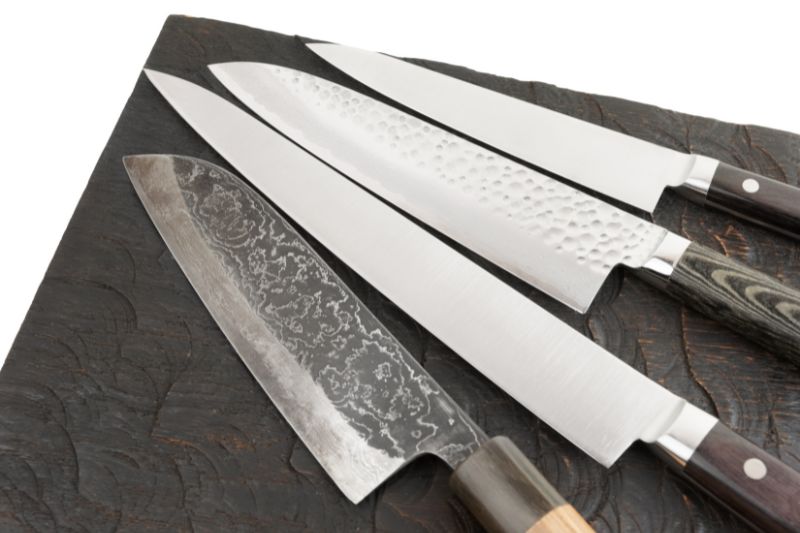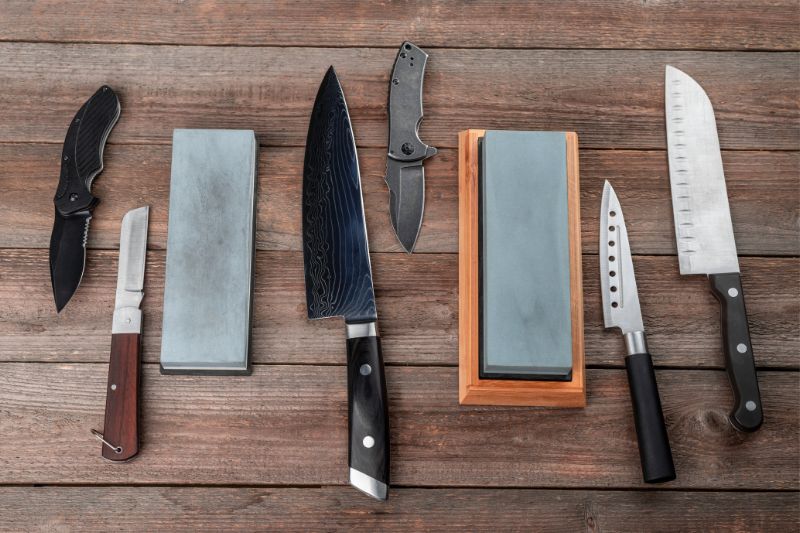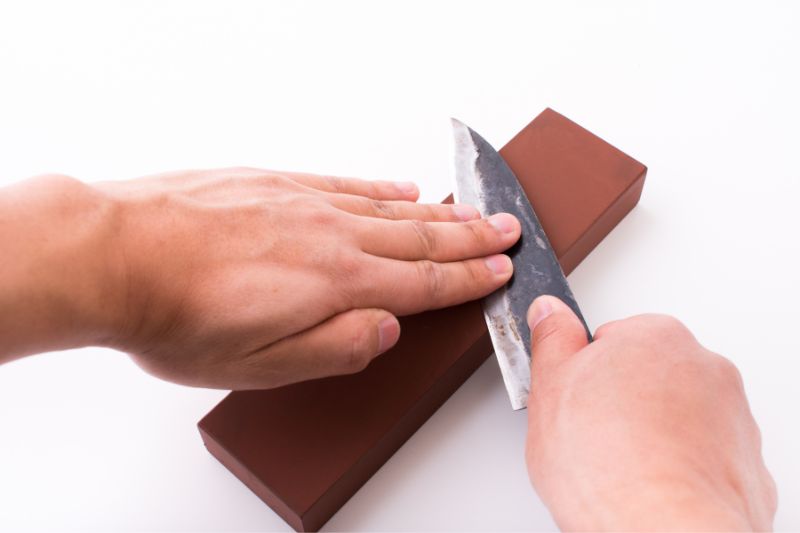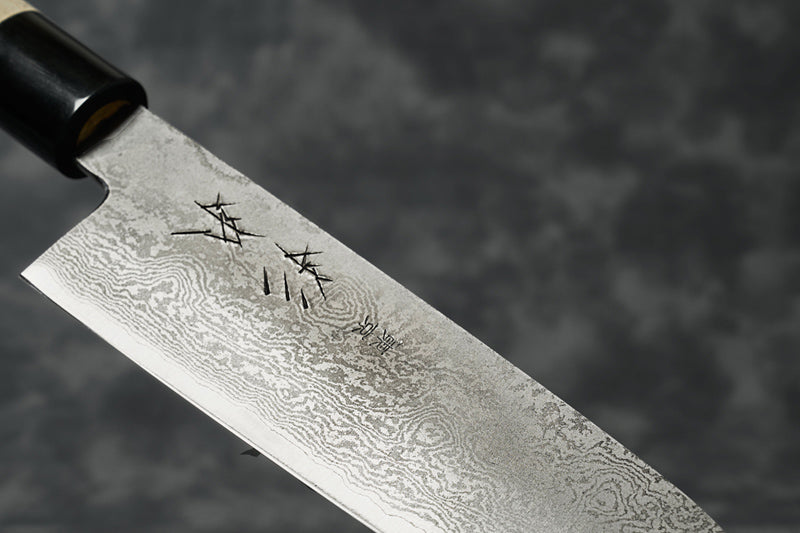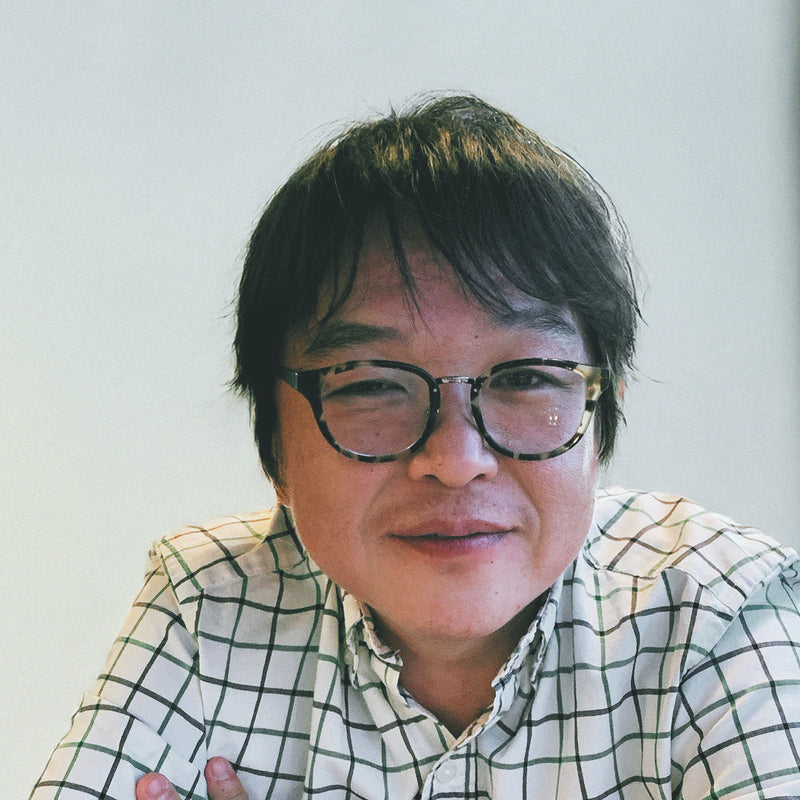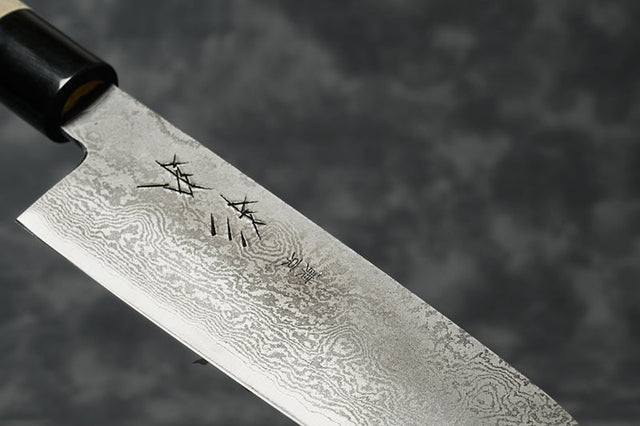It depends on how often you use your knife and the sharpening it needs. Generally, sharpening your Japanese knife every few months is recommended to maintain its edge. However, if you use your knife frequently, you may need to sharpen it more often.
One way to tell if your knife needs sharpening is to see if it's becoming more difficult to slice through food or if you notice it used to be sharper. You can also inspect the edge of the knife to see if there are any visible nicks or chips.

There are a few signs that indicate it's time to sharpen your Japanese knife:
-
Dullness
If your knife is not cutting through food as easily as it used to, or if you need more pressure to make a cut, it's likely time to sharpen the blade.
-
Visible nicks or chips
If you can see any visible ones in the blade, it's time to take it in for sharpening. These can be caused by accidentally hitting the blade against a hard surface or general wear and tear.
-
Uneven edges
Over time, the edge of your knife may become uneven or develop burrs. These uneven edges can cause the blade to catch or slip when cutting, making it more difficult and less precise. If your knife is not cutting smoothly or evenly, it's time to sharpen the blade.
-
Discoloration
If you notice any discoloration on the blade, such as rust or dark spots, it's a sign that the blade needs to be sharpened and possibly cleaned.
If you notice any of these, it's time to take your Japanese knife in for sharpening. It's best to take it to a professional knife sharpener who has experience working with Japanese knives, as they will be able to properly assess the condition of the blade and sharpen it correctly.
It's best to bring your Japanese knife to a professional knife sharpener who has experience with Japanese knives, as they can properly assess the condition of the blade and sharpen it correctly. If you need help determining when to bring your knife in for sharpening or have any concerns about its condition, consulting with a professional is always a good idea.

When looking for a professional Japanese knife sharpener, here are some things to consider:
-
Experience
Look for a sharpener with experience working specifically with Japanese knives. Japanese knives are often made from harder steel than Western knives and require a different sharpening technique. Ask the sharpener about their experience working with Japanese knives.
-
Reputation
Ask for referrals from friends, family, or other chefs who use Japanese knives. You can also read online reviews and ratings to understand the sharpener's reputation.
-
Services offered
Make sure the sharpener provides the specific services you need. For example, if you have a chipped blade, you'll need a sharpener to repair chips and reprofile the blade. If you have a single bevel knife, you'll need a sharpener who can sharpen the blade at the correct angle.
-
Equipment
Check what equipment the sharpener uses. A professional sharpener should have high-quality sharpening stones or a sharpening system specifically designed for Japanese knives.
-
Communication
Look for a sharpener who is willing to communicate with you about your knife and answer any questions you may have. They should be able to explain their sharpening process and offer advice on maintaining your knife's edge.
-
Price
The price for professional knife sharpening can vary depending on the sharpener's experience and the services provided. Get a quote before having your knife sharpened to avoid any surprises.
By considering these factors, you should be able to find a professional Japanese knife sharpener who can keep your knife in top condition.
Get Free Bonus Books

Sign up for free to the Japanese Knife Club to get advice and exclusive articles about how to choose Japanese Knives, and tips and tricks for using Japanese knives.
About the author
Kei Nishida
Author, CEO Dream of Japan
Certification: PMP, BS in Computer Science
Education: Western Washington University
Kei Nishida is a passionate advocate of Japanese craftsmanship, a writer, and the founder and CEO of Japanese Knife Co., Japanese Green Tea Co., and Japanese Coffee Co., all part of Dream of Japan.
His journey began with a mission to introduce the world to the exquisite flavors of Japanese green tea. Through Japanese Green Tea Co., he pioneered the import of premium tea grown in nutrient-rich sugarcane soil, earning multiple Global Tea Champion awards. He then expanded into the world of coffee, launching Japanese Coffee Co., the first company to bring Sumiyaki charcoal-roasted coffee to a global audience.
With a deep appreciation for Japanese artistry and tradition, Kei turned his attention to one of Japan’s most revered crafts: bladesmithing. Through Japanese Knife Co., he made handcrafted katana-style knives, created by a renowned katana maker, available outside Japan for the first time. These exceptional knives embody centuries of samurai sword-making expertise, blending tradition with modern functionality for chefs and collectors alike.
Kei’s journey continues as he uncovers and shares Japan’s hidden treasures—one sip, one blade, and one legacy at a time.

